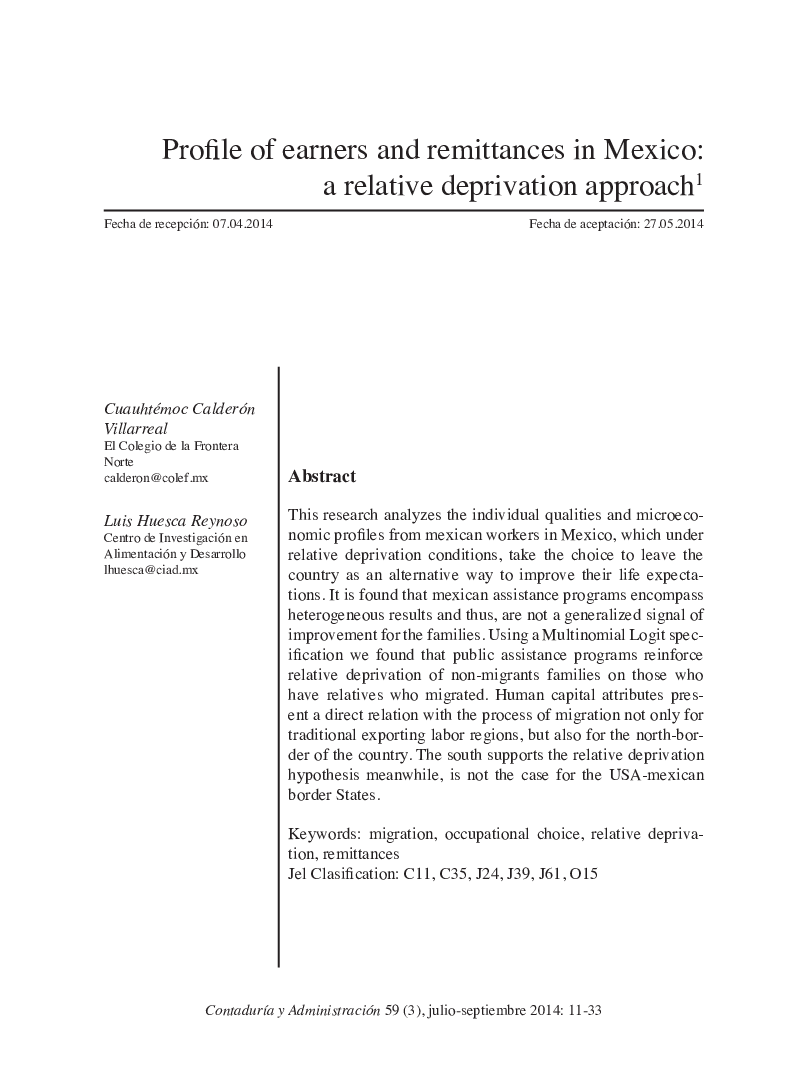| Article ID | Journal | Published Year | Pages | File Type |
|---|---|---|---|---|
| 1004582 | Contaduría y Administración | 2014 | 23 Pages |
This research analyzes the individual qualities and microeconomic profiles from mexican workers in Mexico, which under relative deprivation conditions, take the choice to leave the country as an alternative way to improve their life expectations. It is found that mexican assistance programs encompass heterogeneous results and thus, are not a generalized signal of improvement for the families. Using a Multinomial Logit specification we found that public assistance programs reinforce relative deprivation of non-migrants families on those who have relatives who migrated. Human capital attributes present a direct relation with the process of migration not only for traditional exporting labor regions, but also for the north-border of the country. The south supports the relative deprivation hypothesis meanwhile, is not the case for the USA-mexican border States.
ResumenEsta investigación estudia las cualidades individuales y los perfiles microeconómicos de los trabajadores mexicanos, que bajo condiciones de privación relativa, toman la decisión de abandonar el país con vistas a mejorar sus condiciones de vida. Nuestro trabajo encuentra que los programas que impulsa el gobierno mexicano para combatir la pobreza no son muy eficientes. Usando un modelo Logit Multinomial encontramos que los programas de asistencia pública tienden a reforzar la privación relativa de las familias no migrantes frente a las familias que tienen algún familiar que ha emigrado.
